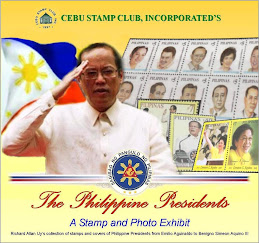Today in Philippine History (Philatelic Edition Series 3):
September 29, 2001
President Gloria Macapagal- Arroyo signed on September 29, 2001 Republic Act No. 9160 or the Anti-Money Laundering Act of 2001. It is an act defining the crime of money laundering and providing penalties therefore and for other purposes. It covers the following institutions:
(1) Banks, non-banks, quasi-banks, trust entities, and all other institutions and their subsidiaries and affiliates supervised or regulated by the Bangko Sentral ng Pilipinas (BSP);
(2) Insurance companies and all other institutions supervised or regulated by the Insurance Commission; and
(3) Securities dealers, brokers, salesmen, investment houses and other similar entities managing securities or rendering services as investment agent, advisor, or consultant, mutual funds, closed-end investment companies, common trust funds, pre-need companies and other similar entities, foreign exchange corporations, money changers, money payment, remittance, and transfer companies and other similar entities, and other entities administering or otherwise dealing in currency, commodities or financial derivatives based thereon, valuable objects, cash substitutes and other similar monetary instruments or property supervised or regulated by Securities and Exchange Commission.
R.A. 9160 also created the Anti-Money Laundering Council (AMLC) composed of the Governor of the Bangko Sentral ng Pilipinas as chairman, the Commissioner of the Insurance Commission and the Chairman of the Securities and Exchange Commission as members.
On January 29, 2021, President Rodrigo R. Duterte signed Republic Act No. 11521 which gives authorities more power to go after suspected cases of money laundering. It strengthens the Anti-Money Laundering Act (AMLA) of 2001, including giving additional powers to the Anti Money Laundering Council (AMLC) and expanding the list of covered persons.
Money laundering is a crime whereby the proceeds of an unlawful activity are transacted, thereby making them appear to have originated from legitimate sources.
(Design, concept, stamps and research: Richard Allan B. Uy) All rights reserved
Photo credit: wikipedia.org




















No comments:
Post a Comment